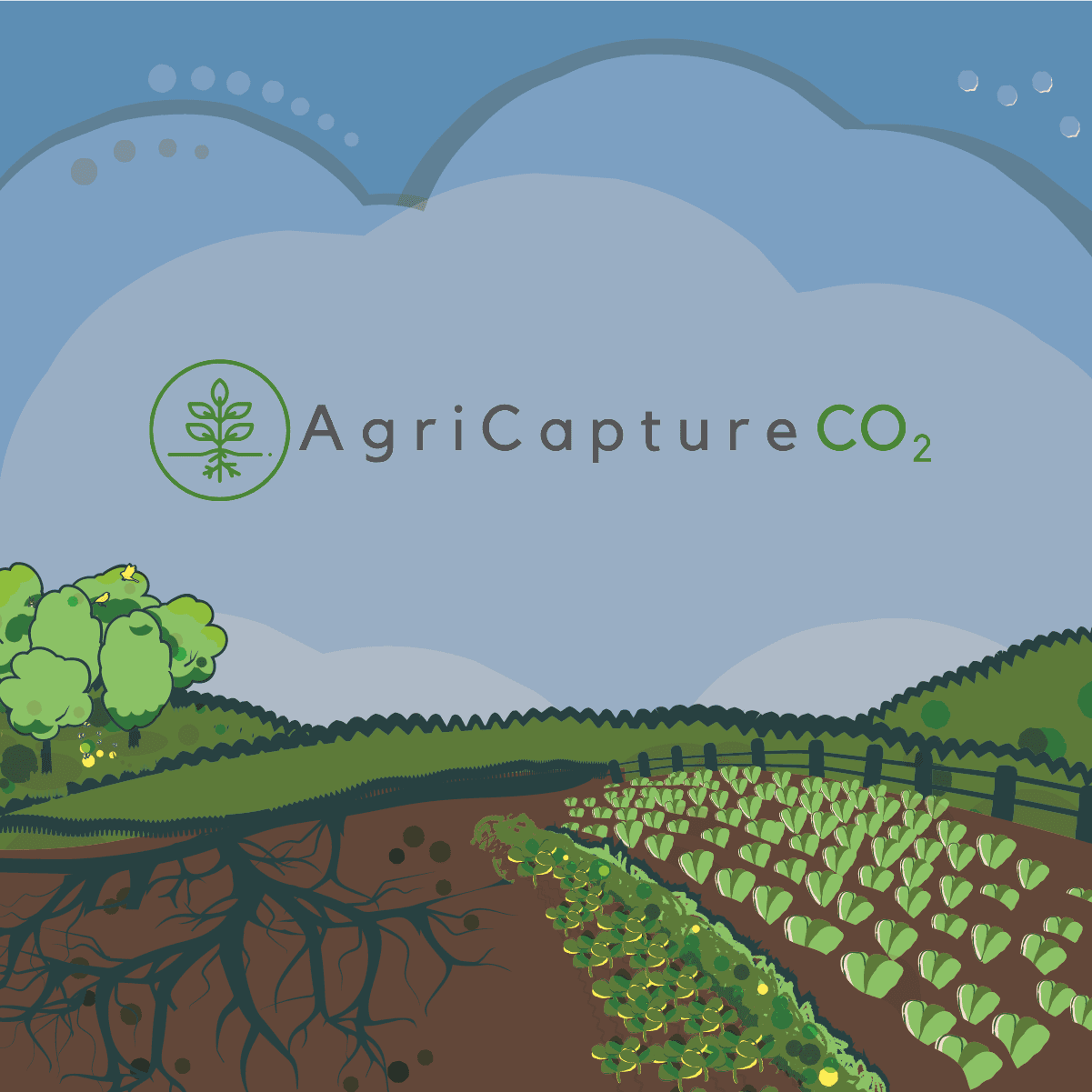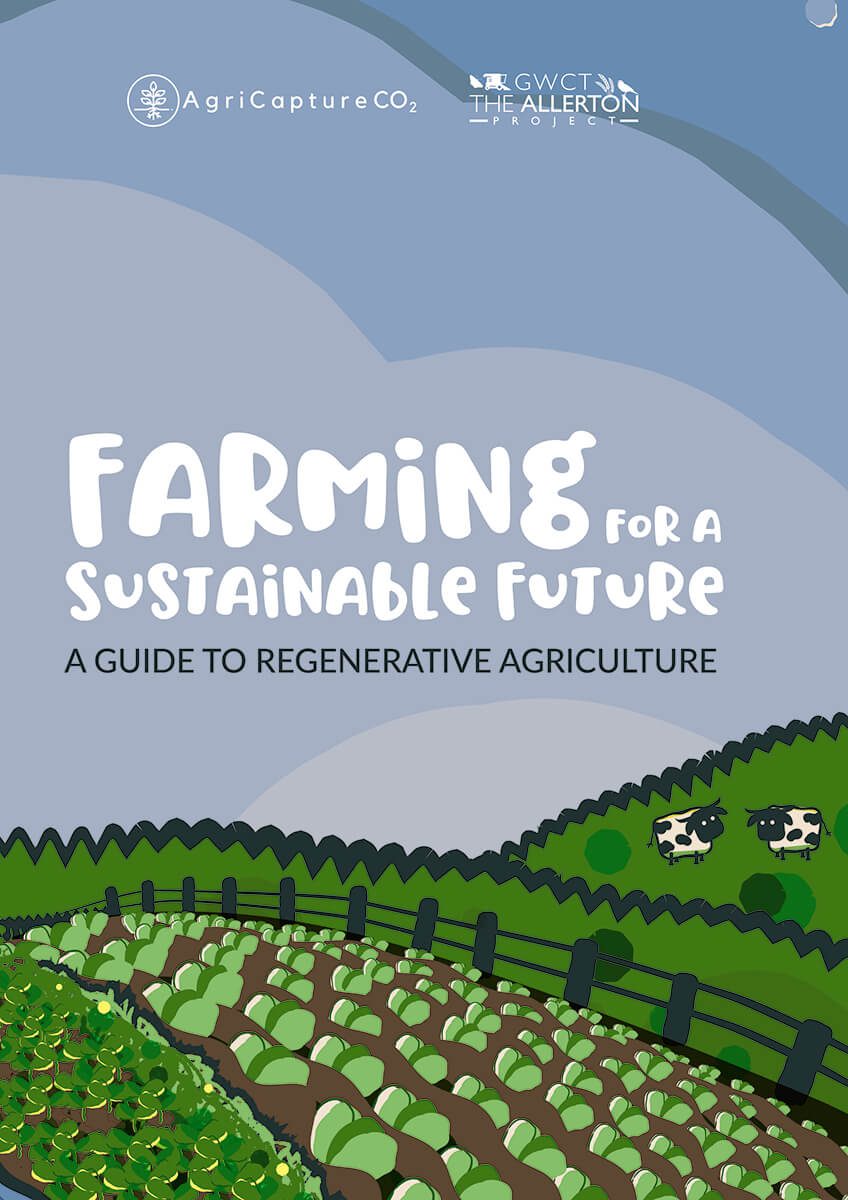Agricapture CO2
Regenerative agriculture is concerned with regenerating soils to boost the natural processes which support productive and sustainable farming. As healthy soils can be carbon sinks, this can benefit both farmers and the climate.
The Problem
Climate change is a growing threat and farmers are on the frontline. They need to adapt to fast-changing weather patterns, while also contributing to reducing greenhouse gas emissions.
The Solution
By adopting regenerative practices, farmers can help solve the climate crisis, improve their resilience, and boost their profit margins. That’s why AgriCaptureCO2 aims to help farmers to adopt regenerative agriculture.
Our Role
The GWCT Allerton Project is providing expert advice, guidance and training to help farmers make the transition to more sustainable farming practices as part of the European Regenerative Agricultural Community to help build on-farm resiliance and profitability.
Climate change poses a real and present danger to human society and global biodiversity and habitat – and agriculture is on the front line. Yet not only does agriculture have the potential to act as a net emitter of greenhouse gases, but it also has the potential to act as a net sink through careful management of its biomass and soils.
AgriCaptureCO2 is an EU Horizon 2020 project consisting of 14 consortium partners across 7 European countries running from 2021-2023. The aim is to develop and launch a commercial software platform that facilitates zero emission aspirations on a large scale, by empowering regenerative agriculture and measuring and monitoring resulting soil carbon sequestration via remote sensing (satellite observation) backed up by robust ground-truthing (soil sampling).
AgriCapture’s vision is to develop a systematic, robust & flexible platform for quantifying and promoting soil carbon capture, allowing farmers and other landowners to become ‘carbon farmers’ and to enable them to engage in carbon trading utilising robust and reliable carbon credits demonstrating strong ‘additionality’ in agricultural practice – to ensure that positive climate outcomes are being achieved.
As the agricultural lead in the consortium, the Allerton Project is leading the establishment of a ‘European Reg Agri Community’ (ERAC) to help farmers adopt more sustainable, regenerative farming practices across the full range of European agriculture, from Cretan olive groves to large-scale arable cropping in Poland. This entails the creation of extensive training resources, videos, podcasts and events to encourage the move toward more sustainable farming practices.
Join the Regenerative Agriculture Community
You can register your interest in joining the European Regenerative Agriculture Community (ERAC).
Agricapture CO2 Training Course
We’re launching the Agricapture CO2 training course in 2024. We can let you know when the course is available – fill in your details here and we’ll be in touch.
AgricaptureCO2 Training - Register Interest
Agricapture CO2 Handbook
Farming for a Sustainable Future
The companion handbook to the Agricapture CO2 training course is available to buy.
The handbook is available for Friends of Allerton to read online for free. Click on the button below to view it in full screen.
Advice & Guidance
What is regenerative agriculture (RA)?
Regenerative agriculture has no set definition – unlike, for example, organic production which has a regulatory basis and official certifying bodies and rules. However, it is generally accepted that RA is a whole-systems approach to farm and landscape management which focusses on the soil and soil health, recognising it as a farmer’s (and society’s) most valuable asset.
Regenerative Practices
Beneath the 6 core principles of regenerative agriculture, AgriCaptureCO2 has also agreed a list of 17 regenerative practices, split into 6 key modules:
Optimisation of
Agronomy & Husbandry
Optimise Synthetic Fertiliser Use
Optimise Synthetic PPP use
Optimise Livestock Husbandry
Optimisation of
Soil Management
Reduce Tillage
Reduce & Alleviate Compaction
Optimisation of
Water Use
Optimise water management
Additon of
Organic Matter – On Farm
Field Residue Retention
Cover & Catch crops
Polycropping
Stockless Grass & Green Manures
Integration of Grazing Livestock
Addition of
Organic Matter – Off Farm
Application of Organic Manures & Composts
Application of biochar
Application of Basalt
Improved Biodiversity
Habitat Creation
Agroforestry
Landscape Scale Collaboration
View our informative Agricapture CO2 Video Series
Over the coming months we will launch our video series, so keep coming back!
The first one is Agroforestry, we hope you enjoy it 🙂


